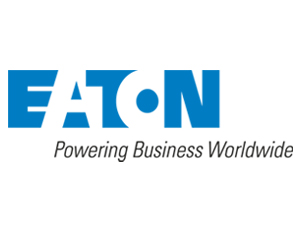EDTECH: How does it compare to other UPS products?
HUSSAINI: We can look at lifecycle, size and runtime.
Lithium-ion batteries offer an eight- to 10-year lifecycle compared with traditional VRLA batteries, which typically need to be replaced every three to five years. The lithium-based version offers a lower total cost of ownership when maintenance and replacement costs are considered for the life of the UPS system.
Depending on their chemistry and construction, lithium-ion batteries are typically about 40 percent lighter than traditional UPS batteries and can help save space. This makes them particularly attractive for today’s distributed IT environments that incorporate multiple facilities rather than one central IT hub. Also, we offer extended runtime with our external battery modules (EBM) and can boast a smaller footprint with the 1U lithium-ion EBM versus its 2U VRLA counterpart. Users can ensure that each “edge” location packs more power backup per square foot.
A lithium-ion UPS system also provides 80 to 120 percent more runtime at full load compared with lead acid batteries. And thanks to their reliability and longer lifespan, the UPS system and batteries themselves come with a longer warranty — two to three times the coverage that might be found with their lead acid counterparts.
EDTECH: Why is a lithium-ion UPS system a good choice for K–12 schools?
HUSSAINI: A lithium-ion UPS system is a great option for K–12 schools and districts to consider as they advance their distributed IT networks. As they add more edge infrastructure to support new physical and virtual learning environments, the longer battery lifespan with lithium-ion technology makes power management easier for those facilities.
School IT administrators benefit from a “set it and forget it” deployment. Lithium-ion doesn’t present the maintenance and refresh challenges of a UPS system with lead acid batteries.
Additionally, in K–12 environments where IT departments are often spread thin, a lithium-ion UPS system can help streamline power management and maintenance processes through integration with other applications.
EDTECH: How can schools optimize their lithium-ion UPS systems?
HUSSAINI: Pairing a lithium-ion UPS system with power monitoring software gives technicians the ability to remotely monitor and manage backup power devices — including both UPS systems and network-enabled rack PDU products — in a dashboard view. That can encompass devices across multiple facilities and campuses.
Power management software has been a valuable resource for schools and other organizations in their efforts to minimize on-premises staff due to the pandemic, allowing IT admins to remotely monitor backup devices. Alerts can be set up in advance to notify IT staff when something needs attention.
READ MORE: How are schools innovating with emerging technology?
EDTECH: How does lithium-ion benefit IT decision-makers?
HUSSAINI: In addition to maximizing a UPS system’s productivity, lithium-ion batteries possess capabilities for advanced intelligence that can help to improve efficiency across day-to-day operations as well as ongoing IT and power management planning efforts.
The ability to acquire new data insights into power backup equipment can help leaders make smarter, more timely decisions and ensure they’re getting the most out of their investments.
The Internet of Things has been a game changer in terms of enabling these capabilities and expanding the benefits of intelligence to the power management space. Intelligent capabilities in UPS systems, for instance, make it easier for IT staff to monitor the health and safety of their devices and respond proactively to a potential issue. IT admins can shift maintenance strategies from being reactive to proactive.
One area where this evolution has been particularly evident is with technology surrounding predictive analytics. These services allow IT staff to anticipate the failure of critical components, such as batteries and mechanical parts, before they occur. Technicians come onsite only when their assistance is absolutely necessary — an important factor for organizations looking to minimize in-person interactions amid the pandemic and beyond.
EDTECH: What should IT leaders consider when purchasing lithium-ion UPS products?
HUSSAINI: Many of the traditional UPS system considerations apply when purchasing a lithium-ion UPS product.
Given the growing interconnectedness between technologies — including power management — cybersecurity is an important element to consider. Network management cards with UL 2900-1 and IEC 62443-4-2 certification can help protect UPS systems against potential threats. With built-in cybersecurity features, these UPS systems boast stronger encryption, configurable password policy and use of CA- and PKI-signed certificates. Using power management software, schools can make timely firmware updates to stay ahead of evolving cybersecurity threats.
Jointly with cybersecurity, the actual physical security surrounding UPS systems and other power management equipment is another component to consider in keeping everything secure. Taking measures to deploy smart security locks on IT racks can help ensure that IT equipment is safe and that only authorized personnel have access.
Sizing considerations — such as form factor, runtime, capacity, inputs and voltage requirements — all must be taken into account as well. Having the right backup system positioned in each location can prevent potential vulnerabilities.
Brought to you by:











